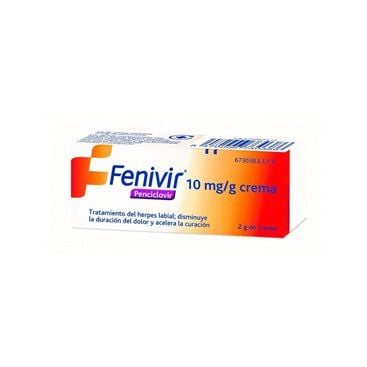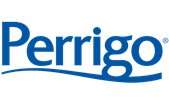Fenivir 10 Mg/G Cream 1 Tube 2 G
Fenivir contains penciclovir and belongs to a group of medicines called antivirals that stop the multiplication of viruses, such as the one that causes cold sores.
Fenivir contains penciclovir and belongs to a group of medicines called antivirals that stop the multiplication of viruses, such as the one that causes cold sores.
Fenivir (10 Mg/G Cream 1 Tube 2 G)
ACTION AND MECHANISM
- [ANTIVIRAL]. Penciclovir has been shown to be active in vivo and in vitro against herpes simplex viruses (types 1 and 2) and varicella zoster virus. Penciclovir acts on virus-infected cells where it is rapidly and efficiently converted to triphosphate (by viral thymidine kinase). Penciclovir triphosphate persists in infected cells for more than 12 hours, where it inhibits viral DNA replication, and has a half-life of 9, 10, and 20 hours in cells infected with varicella zoster virus, herpes simplex virus type 1, and herpes simplex virus type 1. 2, respectively. In uninfected cells treated with penciclovir concentrations of penciclovir triphosphate are only poorly detectable. Consequently, uninfected cells are unlikely to be affected by therapeutic concentrations of penciclovir.
PHARMACOKINETICS
- Absorption: In a study in human volunteers, penciclovir was not quantifiable in plasma and urine after application of penciclovir 180 mg daily doses (approximately 67 times the proposed clinical daily dose) for 4 days on covered skin.
INDICATIONS
- Treatment of [HERPES SIMPLE LABIAL].
POSOLOGY
- Adults (including over 16 years and the elderly): 1 application every 2 hours during the day, continuing for 4 days. Treatment should start as soon as possible after the first sign of infection.
RULES FOR CORRECT ADMINISTRATION
Apply at intervals of approximately 2 hours throughout the day. It should be applied with a clean finger or with a single-use applicator (format with applicators) using the amount required according to the extent of the affected area.
CONTRAINDICATIONS
- Known hypersensitivity to penciclovir, famciclovir or to the other components of the formulation, for example propylene glycol
PRECAUTIONS
- Avoid contact with eyes.
- Application on mucous membranes: Use only on labial and perioral herpes. Its application to mucous membranes is not recommended
- Immunosuppression: In severely immunosuppressed patients (for example, patients with AIDS or recipients of bone marrow transplants), in case of severe disease or frequent recurrences, the administration of the treatment should be considered orally. Such patients should be encouraged to consult a physician regarding treatment of any infection.
ADVICE TO THE PATIENT
- It should be applied at intervals of approximately 2 hours during the day.
- Treatment should be continued for 4 days.
- Avoid contact with eyes or mucous membranes.
- Administer the medication as soon as possible after the appearance of the first symptoms.
- Comply with the full treatment even if the symptoms have improved.
PREGNANCY
Safety in animals : studies have been carried out with intravenous penciclovir in experimental animals with doses equivalent to 1200 times higher than those recommended for clinical use by the topical route, and no embryotoxic and/or teratogenic effects have been recorded in the species.
Safety in humans : It is unlikely that there will be any adverse effects when the cream is used in pregnant women since the systemic absorption of penciclovir after topical administration has been shown to be minimal. Since the safety of penciclovir in pregnant women has not been established, it should only be used during pregnancy when recommended by a physician and if the potential benefits are considered to outweigh the risk associated with treatment.
Effects on fertility : No specific studies in humans have been performed.
LACTATION
- Studies in rats show that penciclovir is excreted in the breast milk of females administered famciclovir (famciclovir; oral form of penciclovir, is converted in vivo to penciclovir). There is no information regarding the elimination of penciclovir in human milk, so it should only be used during lactation when recommended by the doctor and if the potential benefits are considered to outweigh the risk associated with treatment.
KIDS
There is no clinical experience in children under 16 years of age.
SENIORS
No specific problems have been described in this age group. Doses similar to those used in adults.
ADVERSE REACTIONS
The most characteristic side effects are:
- Dermatological alterations (<3%): sensation of [SKIN IRRITATION], stinging and numbness.
ADVERSE REACTIONS RELATING TO EXCIPIENTS
- Because it contains cetostearyl alcohol, it can cause local skin reactions, such as [CONTACT DERMATITIS].
- This medicine contains propylene glycol, so it can cause [SKIN IRRITATION].
OVERDOSE
Symptoms: It is unlikely that any systemic adverse effect will occur when taken orally, due to poor oral absorption of penciclovir. May cause oral irritation.
Treatment: There is no specific treatment.



